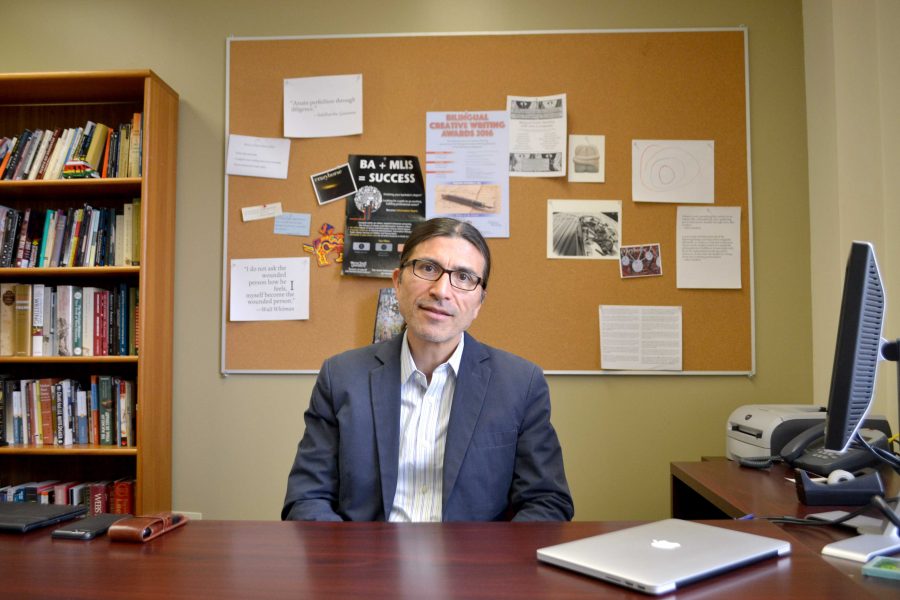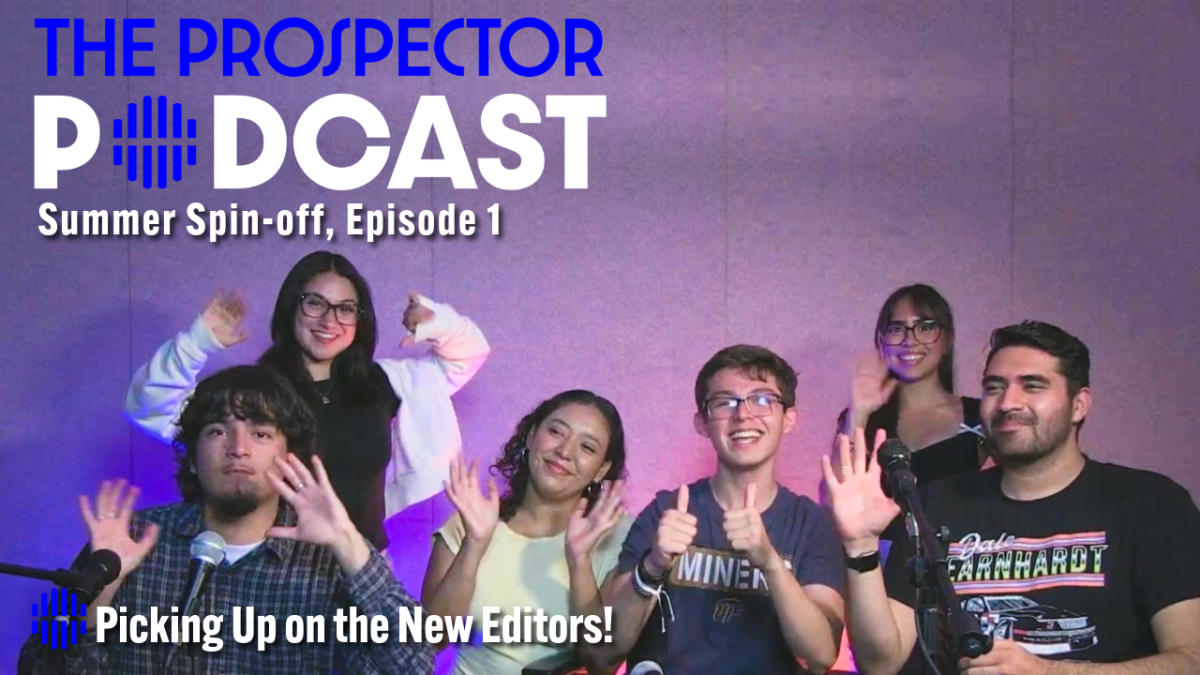Associate professor in creative writing Jose de Piérola was among seven UTEP faculty members honored with the Regents’ Outstanding Teaching Award, which recognizes those teachers who have demonstrated extraordinary and original instruction inside the classroom.
The award is among the most competitive and prestigious in the nation and is also one of the most rewarding with a monetary award of $25,000. In order to receive this award a faculty member must go through a series of rigorous evaluations by students, peer faculty and independent judges.
Piérola, who teaches creative writing and is also the director of graduate studies, says he feels fortunate to receive the award.
“It is a moment of recognition, and recognition is good because it feeds you as a human being so you can continue to be a good professor or so that you can aspire to be a better professor,” Piérola said.
Not only does Piérola see the value of the respectability that the award brings, but he also sees the opportunities that the award presents, such as introducing him to other professors from the UT System.
“You find people who are interested, who are passionate about teaching,” he said. “They teach things that are very different from your own so you learn and you see their own different strategies, their own different thought processes.”
Piérola is an acclaimed novelist and has received literary awards from his home country, Peru, where he won the Short Novel Prize, and in Spain, where he won the Max Aub International Short Story Award. As successful as he as been as a writer, writing was not his initial goal. He worked as an engineer, but writing was always in the back of his mind. He decided to leave that career and focus on his writing, something he says he does not regret.
It is this leap of faith, that step out of his comfort zone, that pushes him as a teacher.
“When I began writing, I didn’t have a mentor or I didn’t have the notion that you can go to school and learn how to write,” Piérola said. “I stumbled through a few years before I realized that the university setting is ideal to nurture and to form a writer.”
Piérola’s teaching comes at a slow but secure pace. He is organized and careful. In some of his classes he introduces meditation so that his students can connect their conscious selves to their subconscious writing.
Mijail Lamas, a master’s student in creative writing, is taking his second class with Piérola. He talks about how careful Piérola is in the weekly organization of his classes and about the multiple exercises that aim to improve his students’ writing.
“What I like the most about his classes is the mixture between practicality and technicality,” Lama said.
Practicality is what Piérola sets as his goal. Using the class time economically really helps him in his highest aim. For him, the most important achievement is that his students leave his classroom as dedicated writers. He believes writing needs to become a habit, something that the student can add to their life without replacing or erasing anything from their life. This is where Piérola finds the most significant difference between habit and discipline.
“The problem with discipline is that you are asking one part of you to take control over another part of you that might not like it,” Piérola said.
Do not rush or multitask, that is his number one piece of advice for his students. The advice fits with his teaching style. Piérola enjoys carefulness because it is instrumental for good learning.
According to Piérola, a student must be able to concentrate in the moment, to read in the moment, to write in the moment and to experience in the moment.
“If you are thinking about the future, which is not there, you are squandering the wealth of this moment,” Piérola said.
Andres Gallegos may be reached at [email protected].









